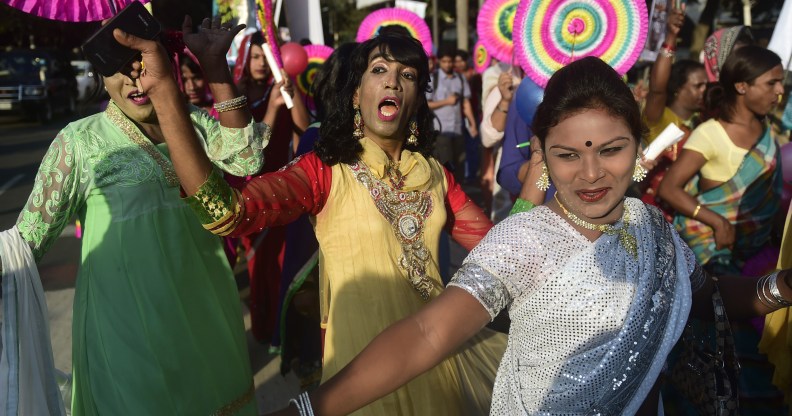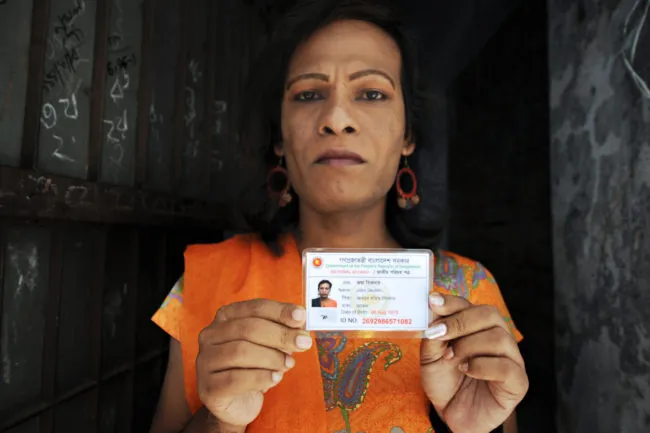Bangladesh gives voting rights to hijra community

Bangladeshi hijras dance in the street during a rally. (Munir Uz Zaman/Getty)
Bangladesh will allow parts of the transgender community to vote under their proper gender identity.
Officials have introduced hijra as a third gender option on voting forms for the first time.
“From now onward, a third gender individual can be a voter with their own identity, as a hijra,” said Abdul Baten, the director of national identity registration, according to The Telegraph.
“The press has already been ordered to print the new forms. Now they can identify themselves as hijras on the national voters list.”
“From now onward, a third gender individual can be a voter with their own identity.”
— Abdul Baten, director of national identity registration
In parts of South Asia, the term hijra refers to certain women, intersex and non-binary people assigned male at birth. While some hijra are trans, not all trans people are hijra.
The Bangladeshi hijra community gained legal recognition in 2013, but many continue to be shunned by their families and by the wider society.
While hijra has been an option on passports since then, Monday’s (April 29) announcement marks the first time the community will be able to present themselves at the ballots with voting forms recognising their gender identity.
Official estimates suggest there are about 10,000 hijra, though the true number may be closer to 100,000.
At least 1,000 hijras took part in Bangladesh’s first ever Pride march in November 2014, marking one year since the government recognised them as a third gender.
Hijra rights improving in India and Bangladesh
In September 2018, a hijra woman became the first transgender human rights official in Bangladesh.
Tanisha Yeasmin Chaity said she hopes to bring “a new beginning for the entire transgender community.”

Bangladeshi hijra social worker Joya Shikder holds her national identity card. (Munir Uz Zaman/Getty)
“Hijras should lead lives as normal people,” she told the Dhaka Tribune.
“The attitude and mindset of society has to change in order to ensure that hijras do not have to do what they are forced to do for money.”
In neighbouring India, trans and non-binary people gained legal recognition in a 2014 Supreme Court hearing.
The ongoing Indian general election marks the first time that hijra and other trans and non-binary people have been able to vote under their correct identity.

